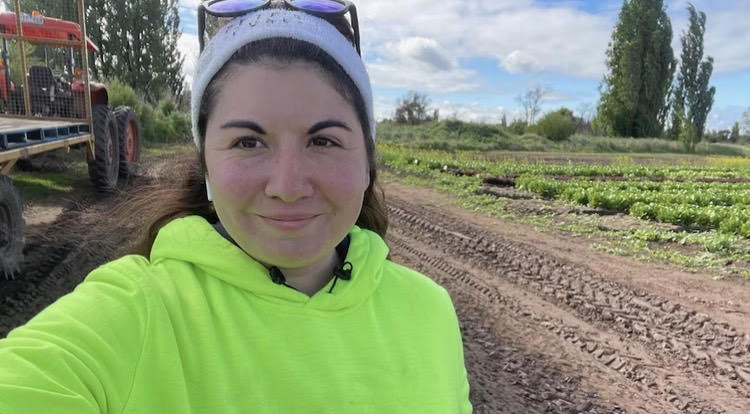This month our teams are getting together to host a Biggest Morning Tea, an event which helps raise awareness and funds to support cancer research and services for those impacted by cancer.
You may be surprised to learn that one in two Australians will be diagnosed with cancer before the age of 85. At our current population, that’s 185,000 Australians every year.
While my family and I have been lucky enough to not have experienced any form of cancer, our close friend Lisbett Lilo – a beautiful, bubbly young woman – has been diagnosed with an aggressive stage 5 breast cancer.
Lisbett is originally from Santiago, Chile, and has been living in Australia for almost five years. She studied as an Industrial Civil Engineer, with a Masters Degree in Science and Engineering. Lisbett currently works on a farm in regional Victoria. Farming is her passion – she enjoys driving tractors, operating machinery and learning as much as possible about primary producers in the industry. Lisbett helps provide Australia with the high quality vegetables we enjoy. During COVID she was an essential worker, helping to maintain local supply of much our needed farm produce.
In Lisbett’s case, a complicated, fast growing, breast cancer has already metastasised. She has just started her course of chemotherapy: 33 cycles, to be administered over the next year. These treatments come with many difficult side effects. Lisbett has proven to us time and time again that she is an incredibly strong woman who has the ability to fight such a devastating cancer diagnosis so early in her life.
In women, breast cancer is one of the most commonly diagnosed forms of cancer, with 57 Australians being diagnosed every day. Around 1000 young women will be diagnosed with breast cancer in Australia every year. That’s about three women under 40 years old diagnosed every day. Whilst these numbers may seem small compared to women aged 40 and over, breast cancer is also the most commonly diagnosed cancer in young women in Australia.
An effective method for the early detection of breast cancer in young women is breast awareness. Women and men of all ages should become aware of how their breasts and axilla normally look and feel, and to report any new or unusual changes to their general practitioner without delay. Everyone with breasts (including women, transgender and gender diverse people) should book in for a regular mammogram. For information on how to conduct a breast exam yourself, the National Breast Cancer Foundation offers a comprehensive guide.
While we have every hope that Lisbett will beat this cancer with her tremendous courage and strength, she has met a significant speed bump on her journey. Lisbett is not entitled to Medicare and only a small part of her medical costs will be covered by her health insurance.
Initiatives such as Australia’s Biggest Morning Tea, which is supported in many workplaces around the country, have made a significant positive impact on addressing our high incidence of cancer, with the charity’s investment in research raising survival rates for Lisbett and others like her from 49% in the 1980s to almost 70% today. We have also set-up a dedicated Go Fund Me Page for Lisbett, where all donations will go directly to her.
Lisbett’s strength and courage has been an inspiration to me and everyone around her. With our help, she and other cancer patients can fight this devastating disease.


